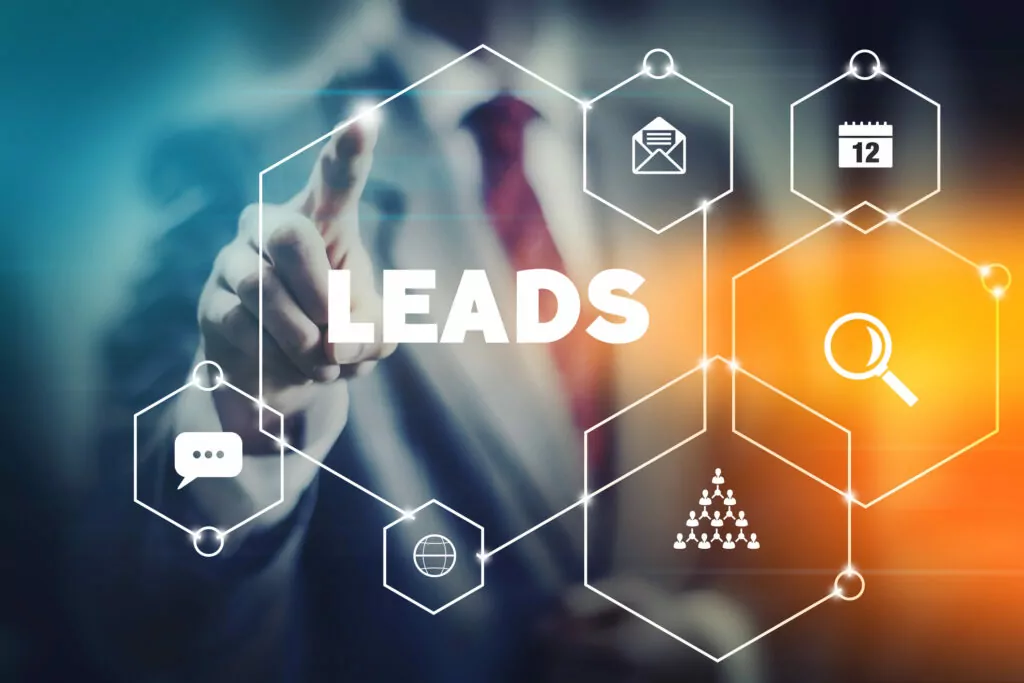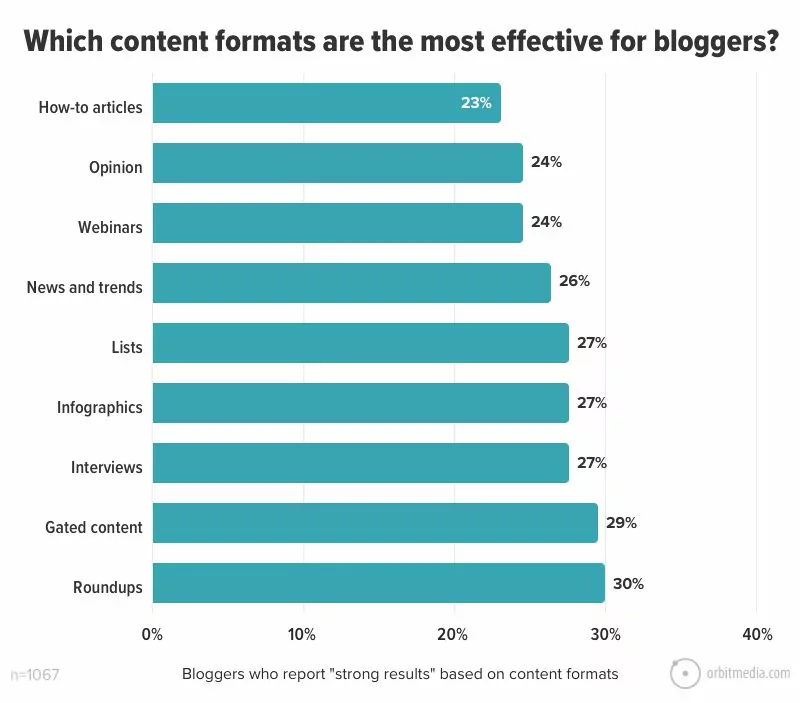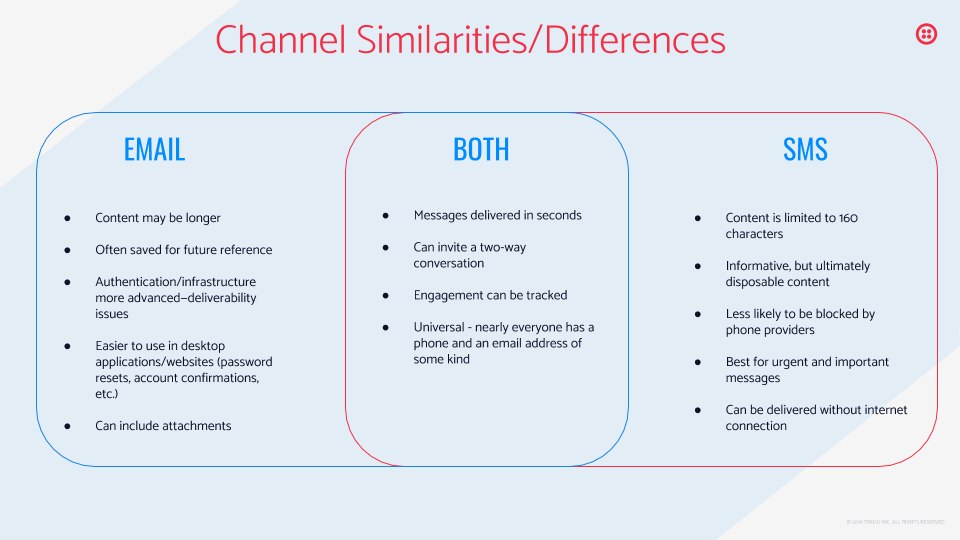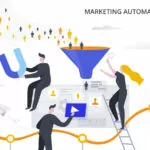Lead generation continues to be a challenge for many businesses, including franchises. When combined with an effective strategy, automated lead generation boosts lead conversions, team productivity, customer retention, and ROI.
This comprehensive guide explores automated lead generation, why it’s important, what types of leads you need to identify, and how to effectively target them with automated solutions. Let’s dive in.
Key Takeaways:
- The goal of lead generation is to attract prospects to your business and convert them into customers.
- Automated lead generation relies on AI and machine-learning tools to optimize your marketing funnel and convert leads automatically.
- There are five types of leads: marketing qualified leads (MQLs), sales qualified leads (SQLs), sales accepted tips (SALs), product qualified leads (PQLs), and service qualified leads.
- Automated lead generation includes content marketing, local SEO, lead magnets, social media, product trials, email, and SMS.
What is Automated Lead Generation, and Why Is It Important for Your Business?
Lead generation is the marketing process of reaching new people and capturing their interest with the end goal of converting them into a customer. Automated lead generation fulfills this role with automatic processes that leverage the help of AI and machine learning to achieve results.
Automation is already changing the way businesses collect data and engage with customers. More than half (57%) of surveyed business professionals plan to invest in customer-centric automation over the next few years.
Automation has many business benefits, including:
- Reducing tedious manual tasks— thereby eliminating human error — and freeing up valuable time for employees to focus on other activities
- Streamlining sales funnels
- Increasing lead response time
- Improving data, tracking, and analytics
- Vetting leads to target the ones most likely to convert
Automation benefits many departments, from CX to HR, but it’s particularly effective for lead generation.
Types of Leads
As you develop your business’s automated lead generation criteria, goals, and strategy, your team should be aware of the different types of leads they’ll be targeting:
- Marketing Qualified Lead (MQL): This type of lead has engaged with marketing material and continued to show interest. For example, an MQL may have downloaded a whitepaper or visited your website several times.
- Sales Qualified Lead (SQL): This lead has taken actions that indicate they’re interested in becoming a paying customer. For example, SQLs may have spoken to a sales representative at a conference or asked your chatbot a question about your product or service.
- Sales Accepted Lead (SAL): A sales accepted lead has interacted with the marketing team, passing the prospect to the sales team for continued nurturing.
- Product Qualified Lead (PQL): This type of lead has used your product but isn’t a customer yet. For example, a PQL may have participated in a product demo or a free trial and is ready to upgrade to the paid version.
- Service Qualified Lead: This lead has interacted with your customer service team. For example, a service qualified lead may have called your CX team to ask about a promotional deal.
7 Automated Lead Generation Marketing Methods Your Business Should Be Using
By automating these marketing channels, your team can increase productivity and ROI:
1. Blogging & Content Marketing
Content marketing is the technique of creating useful, highly relevant, entertaining, or educational content for your audience. Content marketing aims to gain organic traffic and engage your audience.
This marketing method takes many forms, including webinars, podcasts, emails, videos, tutorials, ebooks, whitepapers, social media posts, etc.
However, one of the most common ways businesses focus on content marketing is through a blog. Websites that add a blog can increase their traffic by as much as 434%! Adding relevant, targeted links and calls to action (CTAs) to blog content can automatically funnel interested leads to appropriate pages.
Image Source: Orbit Media
2. Local SEO
Updating a business’s local search engine optimization (SEO) presence is especially impactful for small businesses and franchises.
Local SEO targets an online audience searching for information, resources, or businesses within a local area. Corporations can help their franchised locations by including a “find a store near me” feature on their website to funnel broad content marketing traffic to local locations.
In addition to targeting a localized content marketing strategy, business owners should also claim and optimize their business listing online with tools such as Google My Business, Bing Places, and Apple Maps.
Watch this video for more local SEO tips:
3. Lead Magnets
A lead magnet is a form of content marketing that offers an incentive to a prospect in exchange for their contact information. Common examples of lead magnets include:
- Industry reports
- Ebooks
- Whitepapers
- Free demos, consultations, or trials
- Checklists
- Newsletter sign-ups to unlock a promo code
4. Social Media
Social media platforms have introduced various tools to help businesses automate lead generation. From the swipe-up feature on stories to bio links to adding a promo discount or CTA in your caption, social media is a powerful way to engage with your audience and direct them through sales funnels.
5. Product Trials
Offering free trials to demo your product helps ease a prospect’s reservations about the value you offer. Once a PQL uses the free version of your product, you can target them with special upgrade offers, resources, and other branded materials to continue nurturing the lead into a paying customer.
6. Email Marketing
Automating email workflows ensures that the right message goes to the right prospect or customer at the right time. The marketing team starts by creating all the necessary assets. The automated workflow then sends those emails automatically once the intended recipient takes certain actions.
Examples of email marketing automation to segmented audiences:
- Welcome new subscribers
- Thank customers for making a purchase
- Newsletters and updates
- Flash sales and other promotions
- Tutorials to use and care for products
- Request for product reviews
- Surveys
- Abandoned cart reminders
7. SMS Campaigns and Push Notifications
SMS tools allow businesses to stay connected with their leads. Similar to the benefits of automated email marketing, SMS and push notifications rely on segmented data to send curated marketing messages to prospects based on their location in the sales funnel. Text messaging is especially effective for urgent or time-sensitive material.
Image Source: SendGrid
How Can Corporations Use Automated Lead Generation to Pass Leads to Franchises and Local Dealers?
Lead generation can be challenging for franchises, local dealers, and small businesses that rely on corporate branding and operating guidelines. For example, McDonald’s is an international brand, but franchisees own and operate individual stores.
Here are some ways corporations can support their branches with automated lead generation:
- Create local landing pages and lead magnets for each location. Customize variable information like menus, hours of operation, phone number, address, events, and services that may differ between locations.
- Add a “Find a Store” feature to the corporate website so users who interact with the brand’s general content marketing can easily locate stores in their region.
- Build local social media communities with separate pages for each business location in addition to the main brand’s page. Individual locations can then run their own ads and promotions targeting regional demographics.
- Create a library of branded assets, so local dealers can optimize their lead generation efforts while matching corporate branding guidelines.
Upgrade Your Automated Lead Generation Strategy
Whether your business is big or small, you need automated lead nurturing to compete in today’s fast-paced, ever-changing market. MXTR is a full-service partner dedicated to connecting all of your consumer touchpoints with smart automation and real-time insights.
Schedule a demo to see how our team can help your business with automated lead generation.
Featured Image: istockphoto







